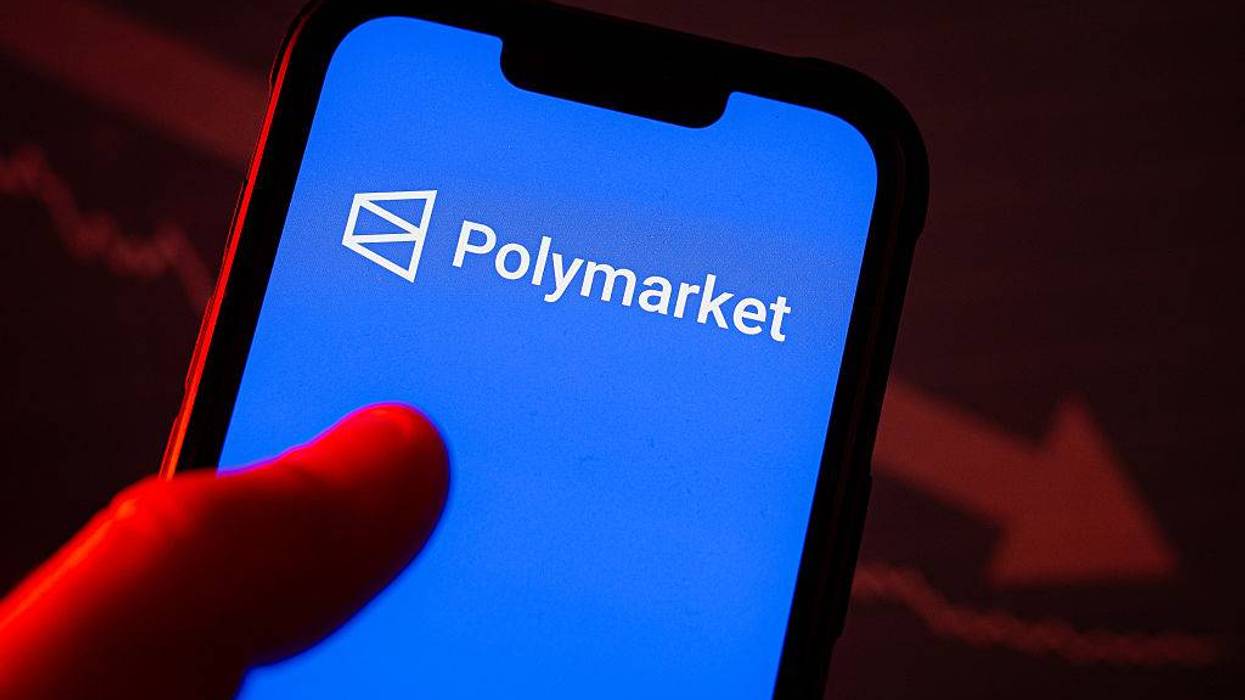Sen. Bernie Sanders (I-Vt.), Ranking Member of the Senate Committee on Health, Education, Labor, and Pensions (HELP), and Rep. Bobby Scott (D-Va.), Ranking Member of the House Committee on Education and Workforce, alongside Senate Minority Leader Chuck Schumer (D-N.Y.), House Minority Leader Hakeem Jeffries (D-N.Y.), House Democratic Whip Katherine Clark (D-Mass.), Sen. Patty Murray (D-Wash.) and Congressional and labor leaders, today reintroduced the Richard L. Trumka Protecting the Right to Organize Act (PRO Act), comprehensive labor legislation to protect the rights of workers to stand together and bargain for fairer wages, better benefits and safer workplaces. The legislation was renamed in honor of former AFL-CIO President Richard L. Trumka.
Joining Sanders, Scott, Schumer, Jeffries and Murray on the PRO Act are Sens. Angela Alsobrooks (D-Md.), Tammy Baldwin (D-Wis.), Michael Bennet (D-Colo.), Richard Blumenthal (D-Conn.), Lisa Blunt Rochester (D-Del.), Cory Booker (D-N.J.), Maria Cantwell (D-Wash.), Chris Coons (D-Del.), Catherine Cortez Masto (D-Nev.), Tammy Duckworth (D-Ill.), Richard Durbin (D-Ill.), John Fetterman (D-Pa.), Ruben Gallego (D-Ariz.), Kirsten Gillibrand (D-N.Y.), Maggie Hassan (D-N.H.), Martin Heinrich (D-N.M.), John Hickenlooper (D-Colo.), Mazie Hirono (D-Hawaii), Tim Kaine (D-Va.), Mark Kelly (D-Ariz.), Andy Kim (D-N.J.), Angus King (I-Maine), Amy Klobuchar (D-Minn.), Ben Ray Luján (D-N.M.), Ed Markey (D-Mass.), Jeff Merkley (D-Ore.), Chris Murphy (D-Conn.), Jon Ossoff (D-Ga.), Alex Padilla (D-Calif.), Gary Peters (D-Mich.), Jack Reed (D-R.I.), Jacky Rosen (D-Nev.), Brian Schatz (D-Hawaii), Adam Schiff (D-Calif.), Jeanne Shaheen (D-N.H.), Elissa Slotkin (D-Mich.), Tina Smith (D-Minn.), Chris Van Hollen (D-Md.), Raphael Warnock (D-Ga.), Elizabeth Warren (D-Mass.), Peter Welch (D-Vt.), Sheldon Whitehouse (D-R.I.) and Ron Wyden (D-Ore.), as well as 210 cosponsors in the House.
“Never before in the history of our nation have income and wealth inequality been greater than today. Workers are falling further and further behind. In response, millions of Americans have expressed their desire to join a union,” said Sanders. “However, the billionaire class is fighting with all its might to put down attempts by workers to exercise their constitutional right to unionize. That includes the decision by President Trump to illegally fire National Labor Relations Board Member Gwynne Wilcox and effectively shut down the NLRB. Without a functioning NLRB, corporate bosses can illegally fire unionizing workers, flagrantly violate labor laws and render free and fair union elections near impossible. Supporting the immediate reinstatement of Member Wilcox and the swift passage of the PRO Act would be major steps toward building real worker power. The PRO Act is long overdue and I am proud to be introducing this bill in the Senate.”
“Unions are essential for building a strong middle class and improving the lives of workers and families. Regrettably, for too long, workers have suffered from anti-union attacks and toothless labor laws that undermined their right to form a union,” said Scott. “As union approval remains at record highs, Congress has an urgent responsibility to ensure that workers can join a union and negotiate for higher pay, better benefits, and safer workplaces. The PRO Act is the most critical step Congress can take to uplift American workers. I urge my House and Senate colleagues on both sides of the aisle to join me in advancing the most significant update for workers’ labor organizing rights in over eighty years.”
“As we speak Donald Trump and his billionaire buddies are stealing the American dream away from working families, rigging every lever of society in favor of the billionaire class,” said Schumer. “That’s why we need the PRO Act, to empower hardworking Americans to bargain for better wages, benefits, and safer working conditions. I’ve been involved in this fight for a very, very long time, and I will stay in this fight for as long as it takes – until every worker gets the wage they deserve, until the right to organize is protected and encouraged and secure, and until we finally make the PRO Act the law of the land.”
“Right now, Donald Trump and Elon Musk are attacking workers, including mass firing people by the tens of thousands, left and right, regardless of how important that work is,” said Murray. “Reintroducing the PRO Act is more important now than ever. This is about making sure we are not just pushing back—but also pushing forward: charting a positive vision for workers and daring Republicans to make their actions match their words. Who do you stand with—the billionaires like Elon Musk and Donald Trump—whose favorite two words are ‘you’re fired?’ Or do you stand with hard working American women and men. People who just want fair pay, decent treatment, and a government that works to make their lives better, not worse? That should not be too much to ask! I’m going to keep fighting, come hell or high water, to make it easier for workers to join together and fight for the better pay and working conditions they deserve.”
“When our unions are strong, the United States of America is strong,” said Jeffries. “While Republicans are focused on giving handouts to their billionaire donors, Democrats will continue to fight to make sure that every American worker can organize and thrive and fight for better wages, better pay, better safety conditions and better benefits. Thanks to the leadership of Ranking Member Bobby Scott, that is exactly what the PRO Act does and we will not rest until we get this legislation across the finish line.”
“Billionaires know there’s no greater threat to their power than a union card,” said Clark. “That’s why they’re using miles of red tape to deny the American people their basic, constitutional right to organize. We can cut that red tape for good. The PRO Act is yet another chance for Republicans to show where they stand: with working people or their billionaire donors.”
“The PRO Act will safeguard the fundamental right of American workers to collectively bargain and organize and will ensure workers receive fair treatment while holding their employers to just standards,” said Rep. Brian Fitzpatrick (R-Pa.). “I am proud to lead this bipartisan effort to strengthen the right of our nation’s hardest-working men and women to organize and negotiate for better wages, benefits, and conditions. A strong workforce is the foundation of a strong nation, and I look forward to working with my colleagues on both sides of the aisle to see this vital legislation through.”
“Americans believe in the power of unions and tens of millions of working people would become union members tomorrow if they could. But American labor law is broken, weighted on the side of the bosses and against the workers. In too many workplaces, in too many industries across the country, big corporations and billionaire CEOs still retaliate against us for organizing. They refuse to negotiate our contracts, force us to sit through hours of anti-union propaganda, and engage in illegal union-busting every day. Now they have an unelected, unaccountable, union-buster trying to illegally fire tens of thousands of our fellow workers in federal jobs and an administration rolling back the workplace protections. The PRO Act is long overdue, and the American people agree. We urge elected leaders of both parties to move this critical legislation forward so that all workers have the chance to stand together and build better lives for themselves and their families,” said AFL-CIO President Liz Shuler.
Large corporations and the wealthy continue to capture the rewards of a growing economy while working families and middle-class Americans are left behind. From 1979 to 2023, annual wages for the bottom 90% of households increased just 44 percent, while average incomes for the wealthiest 1% increased more than 180 percent.
Unions are critical to increasing wages and creating a strong economy that rewards hardworking people. Through the power of collective bargaining, the typical union worker earns 16 percent more than the typical non-union worker.
The American people’s support for unions is surging. According to a 2024 Gallup poll, 70 percent of Americans approve of labor unions — remaining at near record highs. Despite growing support for unions, billionaire- and special interest-funded attacks on the rights of workers, unions and labor laws have eroded union density and made it harder for workers to organize. The share of American workers who are union members has fallen from roughly one in three workers in 1956 to a new low of 9.9 percent in 2024. The PRO Act restores fairness to the economy by strengthening the federal law that protects the right of workers to join a union and bargain for higher pay, better benefits and safer workplaces.
The PRO Act would protect the right to organize and collectively bargain by:
- Bolstering remedies and punishing violations of the rights of workers through authorizing meaningful penalties for employers that violate their rights, strengthening support for workers who suffer retaliation for exercising their rights and authorizing a private right of action for violation of the rights of workers.
- Strengthening the rights of workers to join together and negotiate for better working conditions by enhancing their right to support secondary boycotts, ensuring unions can collect “fair share” fees, modernizing the union election process and facilitating initial collective bargaining agreements.
- Restoring fairness to an economy rigged against workers by closing loopholes that allow employers to misclassify their employees as supervisors and independent contractors and increasing transparency in labor-management relations.
More than 18 organizations endorsed the PRO Act, including the AFL-CIO, Service Employees International Union (SEIU), United Autoworkers (UAW), United Steelworkers (USW), Communications Workers of America (CWA), National Nurses United (NNU), International Alliance of Theatrical Stage Employees (IATSE), Department for Professional Employees, AFL-CIO (DPE), National Postal Mail Handlers Union (NPMHU), American Federation of Teachers (AFT), International Association of Sheet Metal, Air, Rail and Transportation Workers (SMART), the American Federation of Musicians, International Association of Machinists and Aerospace Workers (IAM), International Union of Bricklayers and Allied Craftworkers, Laborers’ International Union of North America (LiUNA), Transport Workers Union (TWU), International Brotherhood of Electrical Workers (IBEW) and the International Union of Painters and Allied Trades (IUPAT).
Read the bill text here.
Read a fact sheet here.
Read a section-by-section summary here.





